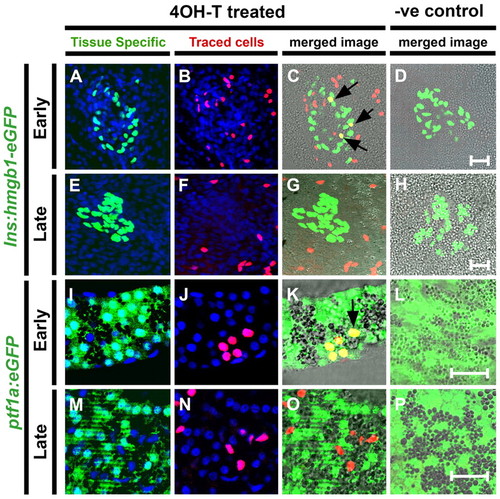Fig. 3
|
Early Notch-responsive progenitors contribute to principal islet β-cells and exocrine cells. (A-P) Confocal images (single optic section) of microdissected pancreata from GIFM larvae at 5 dpf. Fish are also transgenic for either (A-H) ins:hmgb1-eGFP (marking β-cells with nuclear GFP) or (I-P) ptf1a:eGFP (marking acinar cells with GFP). As indicated, larvae were treated either with 4OHT (4OHT treated) or with vehicle alone as a negative control (–ve control; D,H,L,P). 4OHT or vehicle was added at two different stages of development: 12-36 hpf, which is a developmental stage covering the appearance of the pancreas (Early); or 56-80 hpf, a stage of pancreas maturation (Late). (A,E,I,M) Tissue-specific markers in GFP and nuclei in DAPI (blue). (B,F,J,N) Lineage-traced cells with red labeled nuclei. (C,G,K,O) Red and green images merged with bright field. Cells positive for both tissue-specific transgene and lineage labeling appear yellow; examples are indicated with black arrows. Treatment with 4OHT leads to labeling of β-cells of the principal islet and cells of the exocrine pancreas when added at 12 hpf (C,K) but rarely if added later at 56 hpf (G,O). Scale bars: 20 μm in D,H,L,P. |

